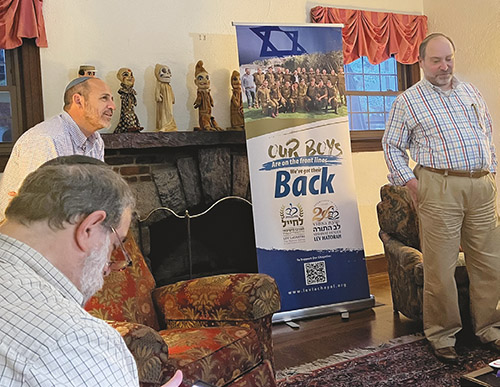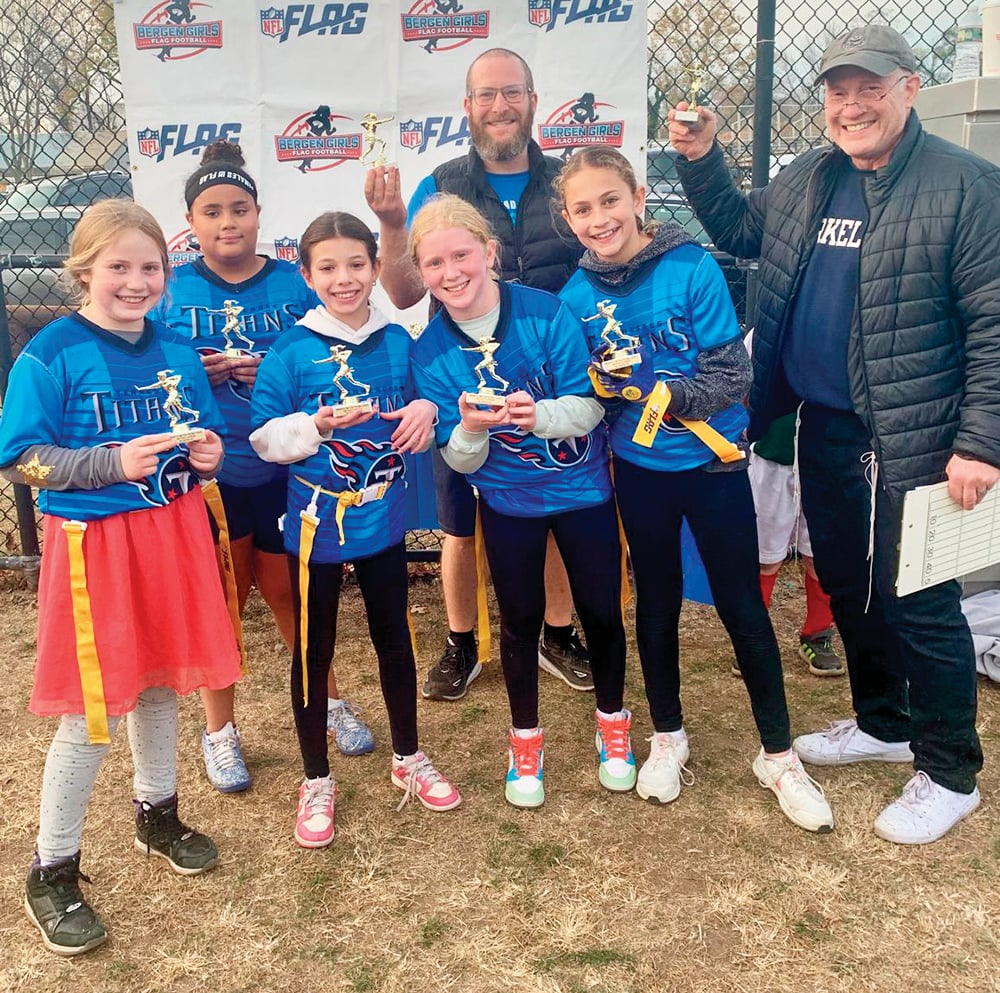


On June 28, Mark and Anne-Beth Levenson of White Plains hosted an informative session for local parents about the only Anglo/Lone soldier hesder yeshiva in Israel, Lev LaChayal. They speak from experience; their son Zally is concluding IDF training and beginning active service.
Mark Levenson explained that Lev LaChayal not only provided orientation and preliminary training before Zolly was drafted, but continues to help him navigate Israeli government paperwork and requirements. It also provides a constant home-away-from-home where he has a community he rejoins whenever he has a Shabbat or Yom Tov off, and provides whatever services he needs.
“He spent a wonderful gap year in Mevaseret, and his second year at Lev. The program is a foundation to moving on into the army, where others care deeply about him and show it. It takes care of his intellectual, religious, and social needs, providing a complete community for him to make him feel comfortable in what he wants to do,” said Mark.
Rav Dudi Winkler, the program’s director, explained, “I try to visit parents of chayalim right after they draft because it’s important for me to know where they’re coming from. If we are their family away from home, it’s important to know their background.” Winkler credited former New Rochelle resident Noam White for the program’s creation. Winkler went on shlichut to Australia the year after teaching White. When he returned, White explained how “our guys want to go into the army as lone soldiers. We started eight years ago with five guys. This year and last we had 30 guys drafting, totaling 53 guys living by us.”
Winkler explained the challenges for lone soldiers. The first hurdle is a Hebrew language test. If a potential recruit doesn’t pass, the army sends them to a program until they do.
In addition to loneliness, Winkler highlighted other challenges: landlords or cellular phone companies going unpaid because the lone soldier never opened an Israeli account, or they come home to laundry machines or air conditioning that aren’t working.
Lev LaChayal’s concept is to create a situation where there’s no loneliness. Winkler stated, “What would I do as a parent and my son is back from the army? I would make sure that he showers, cleans his dirty uniform and rests. This was easy when we had five but now, we have 53 soldiers living in our neighborhood. The goal is not just to have the house; we need to make sure they have everything that a father and mother would’ve done.”
Each young family in the Lev community has a group of 10-15 soldiers. When they return for Shabbat (and not everybody returns for the same Shabbat) the soldiers have one meal together and another with that family, Winkler or other yeshiva staff. For seudah shlishit, they assemble as a group. “Every week’s kiddush celebrates that they are doing something great,” said Winkler. Every Motzei Shabbat, soldiers can request what they need for their next visit home. He often drives boys back on Sundays, “because I want to have special time with them and check on their needs and experiences.”
According to Winkler, there are three types of young men who become lone soldiers. Some are idealistic and love Israel. Group two comes to Israel,planning to attend college the next year but realize they’re not ready. They don’t want to be “losers not attending college,” so they become champions, as soldiers. The third group, possibly 10 percent, are running away from difficulties such as divorce or illness. These young men want to start new lives in the army.
Winkler’s “main goal is to make sure the guys are safe.” They have a psychologist, a Yeshiva University alumnus, who runs weekly group sessions and meets every individual at least twice before they enlist. “I want to have a green light from a psychologist that knows that there’s nothing I need to worry about, because I’m 60 emergency contacts.”
Five years ago, Lev L’Chayal became a hesder yeshiva, which helps keep these boys together in units.
Winkler noted that lone soldiers are paid 1,300 shekels monthly for rent and utilities. “We give them rental contracts and furnish the apartments with everything they need. We stock their fridges and cabinets. Winkler explained the 1,300 shekels do not cover all expenses.
“Every year, we fundraise to cover all expenses.”
Winkler is also raising funds to build a new five-floor facility, with laundry facilities and a gym, game room and lots of storage.
Lev LaChayal wants chayalim to feel it is their home. “We want to be the religious lone soldier center with a yeshiva environment, whether only for preparation toward the army or a place that takes care of soldiers like our own sons.”
To date, the organization has raised $2.5 million, but still needs another $1.5 million. Winkler concluded, “I travel to find partners for families who brought to this world the future leaders and activists of Israel.”
By Judy Berger











